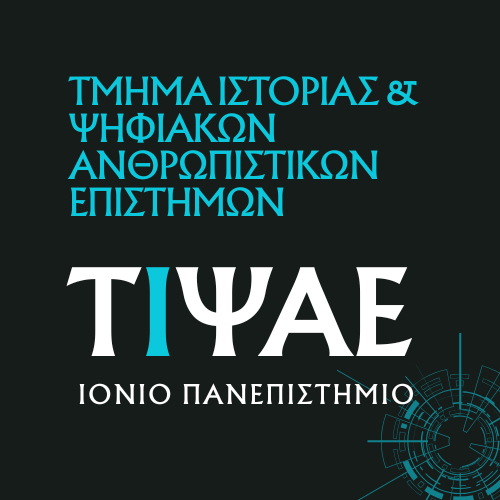Teaching Staff: Damilakou Maria
Course Code: ΙΑΜ610
Course Type: Seminar
Course Level: Undergraduate
Course Language: Greek
Delivery method: Lectures
Semester: 8th
ECTS: 5
E Class Page: https://opencourses.ionio.gr/courses/DHI384/
Curricula: Curriculum in History up to 2024-25, Curriculum in History and Digital Humanities from 2025
Cinema constitutes a unique medium for approaching and understanding the history and societies of Latin America. The seminar examines, through the analysis of selected films and documentaries, how the complex social and political landscape as well as key moments in the historical trajectory of Latin American countries are represented in Latin American and international cinema. The analysis focuses on three thematic axes:
a) the trauma caused in Latin American societies by state terrorism during the 1970s and 1980s,
b) the revolutionary dynamics of Latin America, as expressed from the Mexican Revolution (1910) and the Cuban Revolution (1959) to contemporary forms of popular resistance, and
c) the various forms of social exclusion, as manifested in the dualism of the urban type, social barriers, illegal migration, structural inequality, and endemic violence.
Upon successful completion of the course, the student will:
- Have acquired basic knowledge of the characteristics and structures of Latin American societies.
- Have reflected on the representation of history and society in art.
- Have deepened their understanding of issues concerning identity and the image of the self and the other.
- Be able to relate Latin American history to broader processes and phenomena of contemporary world history.
- Be familiarized with a historicized approach to art, and cinema in particular.
Lectures 1–4
First thematic unit: The revolutionary dynamics of Latin America, as expressed from the Mexican Revolution (1910) and the Cuban Revolution (1959). Film screenings and class discussion.
Lectures 5–9
Second thematic unit: Various forms of social exclusion, as reflected in the dualism of the urban type, social barriers, structural inequality, and endemic violence. Film screenings and class discussion.
Lectures 10–13
Third thematic unit: The trauma caused in Latin American societies by state terrorism during the 1970s and 1980s. Film screenings and class discussion.
Μαρία Δαμηλάκου, Ιστορία της Λατινικής Αμερικής από το τέλος της αποικιοκρατίας μέχρι σήμερα, Αθήνα, Αιώρα, 2014.
Χοσέ Κάρλος Μαριάτεγκι, Επτά δοκίμια για την ερμηνεία της περουβιανής πραγματικότητας, Αθήνα, Άγρα, 2008.
Εντουάρντο Γκαλεάνο, Οι ανοιχτές φλέβες της Λατινικής Αμερικής, Αθήνα, Κουκκίδα, 2008.
Ερνέστο Γκεβάρα (Τσε), Ημερολόγια Μοτοσικλέτας. Σημειώσεις από ένα ταξίδι στη Λατινική Αμερική, Αθήνα, Λιβάνης, 2004.
Marc Ferro, Κινηματογράφος και Ιστορία, Αθήνα, Μεταίχμιο, 2002.
Film screenings and class discussions. Analysis of texts uploaded to the e-class platform.
The course relies on the use of audiovisual media in class and extensive use of the e-class platform as a means of communication, exchange of views, and assessment.
Student assessment is based on:
A) Their participation in the weekly in-class film screenings and the related discussion that follows.
B) The weekly assignments they prepare (development of a written question related to the theme of the film and class discussion, research and material gathering), which are uploaded to the course’s e-class chat.
Back



